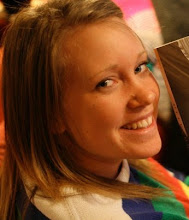In the new earth I hope to sit down with Eugene Peterson and spend a good amount of time just listening to him. I read an article titled 'A Conversation with Eugene Peterson' from Image this afternoon and was moved by his insights on embodying the gospel. I especially love that he has a deep appreciation for literature!
Also, Angela told me that Bono once asked Eugene Peterson to meet with him, but Peterson turned him down because he was writing. My fascination with him rose and now is overflowing into this blog.
Here is an excerpt from the conversation:
Image: What poets do you read and benefit from? What theologians?
EP: Auden has meant a lot to me. I learned more about prosody from Auden than anyone else. Some of his poems seem to me so probing of the human condition and the culture in which we live. He was very much aware of the nature of the culture, and had a clear sense of how the gospel and redemption work in it.
At one point in my life T.S. Eliot was the poet who was most important to me. The contrast between The Waste Land and Four Quartets sees to me such a stark illustration of what happens when a sharply attentive non-Christian mind becomes a sharply attentive Christian mind. As a pastor, it's easy to find out what's wrong with the world and condemn it and preach into it. It's a very different thing to look at that same world and pray it. That's what I wanted to do, and Eliot was primary in my learning how. I'll always be grateful to him for that.
The two writers who've most influenced the way I use language and the way I developed vocationally as a pastor are Teresa of Avila and John of the Cross. Theologically I was brought up on Calvin and Luther and later on Barth. They're all magnificant theologians, and not without imagination. They care about words, but I think of them as mountain climbers. They go to the heights. They see the whole thing. But five or ten years into being a pastor, I was introduced by a friend to Teresa of Avila and John of the Cross. They are theologians of a very different kind. I think of them as theologians of the valley, where people live. Tersa is a storyteller. Everything she wrote is storied. John is a poet. Much of his writing is explication of his poetry, but all of it is rooted in the poetry, which has its basis in the Song of Songs. I realized that as a pastor I need Teresa and John right alongside Luther and Calvin and Barth. My job is not just announcing the truth of God; it's getting people into the country where the truth is lived. Teresa and John do that magnificentyly. While Luther and Calvin and Barth are proclaiming the truth from the mountain, Teresa and John are down in the valley plowing the fields, sowing the seeds, pulling the weeds. That's what pastors do. That's also what poets and novelists do. I couldn't live without the mountain climbers, but I couldn't do my work without the farmers.



0 comments:
Post a Comment